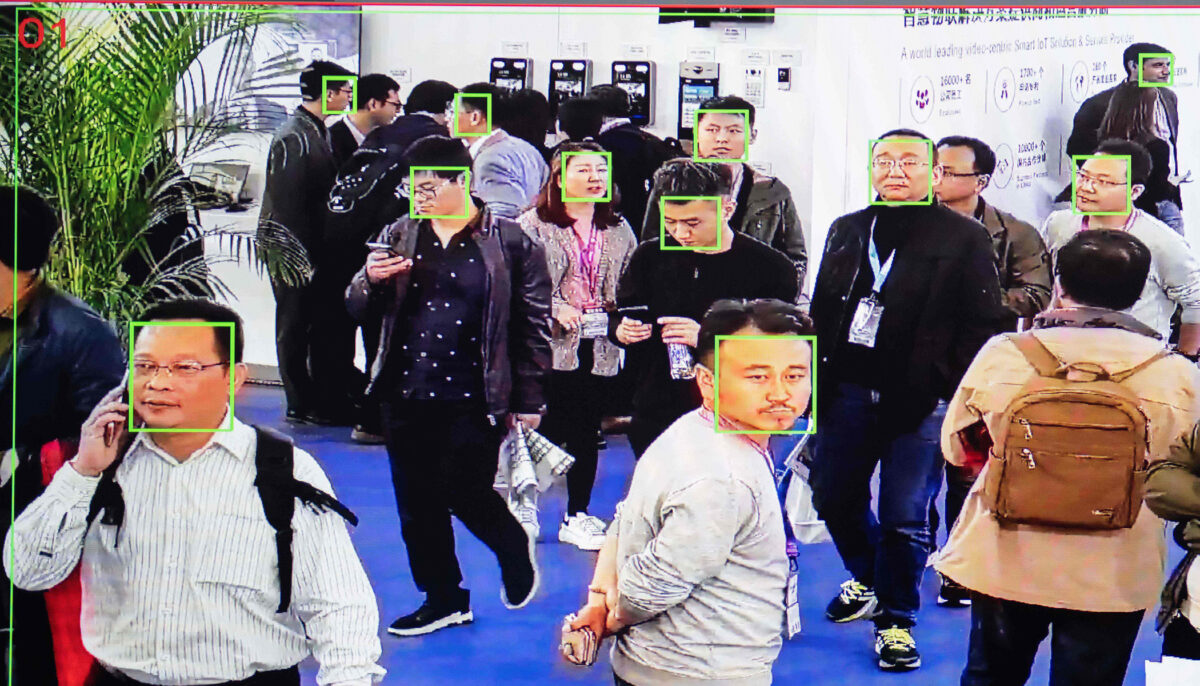The World Economic Forum Will Dictate the Fourth Industrial Revolution

Commentary
Beginning in the 18th century, the Industrial Revolution fundamentally altered the fabric of society. With the means of production moving from homes to factories, society became more urban and industrialized.
The Second Industrial Revolution, which began in the 1850s, gifted humanity with advanced technologies like airplanes and automobiles. This was the age of entrepreneurial endeavor, with the likes of Henry Ford, founder of the Ford Motor Company, developing the assembly line mode of mass production.
Less than a century later, the Third Industrial Revolution occurred; humans were introduced to cell phones as big as computers and computers as big fridges. Space, once a place visited through telescopic lenses, could now be explored in person. John Glenn became the first American to orbit Earth, and Neil Armstrong became the first person to walk on the moon, even if the skeptics tell you otherwise.
The Brits led the way with the First and Second industrial revolutions; the United States spearheaded the Third Revolution. However, the Fourth Industrial Revolution (4IR) will look a bit different. That’s because the World Economic Forum (WEF), with a nod to communist China, will lead the way.
The founder of WEF, Klaus Schwab, has repeatedly spoken about the global economy’s restructuring and how this process will inevitably result in various social tensions. To progress as a society, however, these tensions, he suggested, are necessary. Last year, Schwab encouraged listeners to “embrace the Fourth Industrial Revolution,” a new era that will fuse “our physical, our digital, and our biological identities.”
This is not Schwab’s first time discussing the new revolution. In fact, the German coined the term. He firmly believes that this fusion of various worlds (physical, digital, and biological) will impact “all disciplines, economies, and industries,” and even challenge ideas “about what it means to be human.”
From January 16–20, the WEF’s annual meeting will take place. The Fourth Industrial Revolution, according to the WEF’s site, will be a focus of many conversations. Readers are told that to navigate certain “current friction points,” such as “climate change and geopolitical fragmentation,” companies around the world must “foster emerging technologies of 4IR as well as optimize for agility.”
If you are imagining a dystopian future where humans are monitored even more closely, then you are imagining correctly. This brings us to China, a country that has received great praise from Mr. Schwab and is at the forefront of the new revolution.
In China, the “physical, digital, and biological” are strictly controlled by the Chinese Communist Party (CCP). For years, Beijing has been exporting this particular style of governance around the world.
With a history of intellectual property theft (in 2019, 1 in 5 American companies claimed China had stolen their IP) and academic espionage, this revolution will be defined by big data and various artificial intelligence (AI) systems.
Couple the Chinese regime’s willingness to steal IP with its improvement in educational standards, and you have a recipe for significant growth. As an increasing number of Chinese students embrace STEM subjects, a growing number of Americans are turning away from them. With fewer STEM graduates, the United States may struggle to compete with an increasingly aggressive, competitive, and technologically-savvy China.
With the Fourth Industrial Revolution, both artificial intelligence (AI) and quantum computing will play integral roles in shaping the societies of tomorrow. That’s bad news for Americans.
According to Nicolas Chaillan, the Pentagon’s former chief software engineer, the United States has “no competing fighting chance against China in 15 to 20 years.” Right now, he argues, “it’s already a done deal; it is already over.”


Although the U.S. government spends three times the amount China does on defense, it has little to show for it. In fact, according to Chaillan, China’s advances in AI, “machine learning and cyber capabilities,” make U.S. cyber defenses look utterly pathetic. Bureaucratic red tape and overregulation are preventing the country from competing with China.
Moreover, China is close to creating the “quantum internet,” an online world that will be virtually unhackable. If successful, this would give the CCP an unprecedented level of geopolitical and technological clout.
Having lived in the country for an extensive period of time, I have witnessed China’s fully automated warehouses, its robot-run restaurants, and its driverless taxis. Already the dominant player in 5G, China is a technological powerhouse. Going forward, the country’s high-tech dominance will have a major impact on every aspect of life, including the nature of warfare.
The Future of War
Schwab goes to great lengths to stress the following: the current revolution is like no other; it’s not simply a natural progression from the previous one. It’s completely new, like nothing that ever came before. The synergistic nature of quantum computing and AI, as well as biotechnology and nanotechnology, will change our lives in ways we can scarcely imagine.
As strategic experts David Barno and Nora Bensahel have noted, this revolution is giving rise to a host of new, highly “innovative weapons systems, including railguns, directed energy weapons, hyper-velocity projectiles, and hypersonic missiles.” Not surprisingly, this type of weaponry “will dramatically increase the speed, range, and destructive power of conventional weapons beyond anything previously imaginable.”
Unlike China, the U.S. military appears to be overly reliant on legacy systems, they warn, thus giving the CCP a distinct advantage. With research and development, China continues to increase expenditure at an annual rate of 16 percent of its GDP; the United States, meanwhile, falls even further behind. In Shenzhen alone, a city of 12 million people, Beijing has invested more than $100 billion in tech-based research. China’s astounding progress should come as little surprise. This is a country that builds cities faster than most countries build houses.
The United States and China, already engaged in a new cold war, may find themselves engaged in a real war in the not-so-distant future. If they do, then China, rather than the United States, may have the upper hand. The consequences of this could prove to be severe.
In the words of David P. Goldman, a columnist for Asia Times, the CCP “wants to lead the Fourth Industrial Revolution and thereby win the future.” If it succeeds in doing so, “the consequences for the United States will be disastrous.” Americans “will become considerably poorer,” American politics “less stable,” and the U.S. economy “dominated by an adversary.”
The Fourth Industrial Revolution is already upon us. Now is the time for the United States to ensure that the Chinese regime doesn’t dominate it. As for the WEF, sadly, whether we like it or not, the elites in Davos are destined to play a defining role in this tech-fueled metamorphosis.
Views expressed in this article are the opinions of the author and do not necessarily reflect the views of The Epoch Times.




